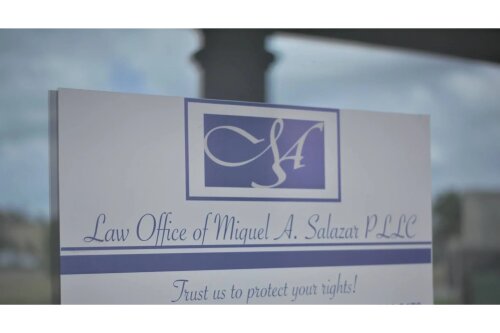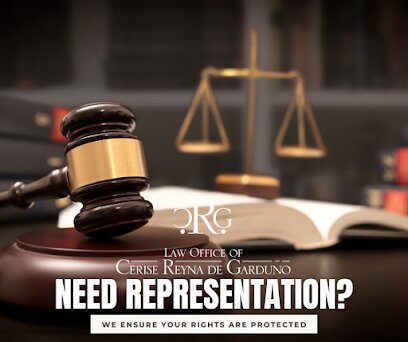Best Adoption Lawyers in Indiana
Share your needs with us, get contacted by law firms.
Free. Takes 2 min.
Free Guide to Hiring a Family Lawyer
Or refine your search by selecting a city:
List of the best lawyers in Indiana, United States
About Adoption Law in Indiana, United States
Adoption in Indiana is a legal process that creates a permanent parent-child relationship between people who are not biologically related. It gives full parental rights and responsibilities to adoptive parents. Adoption laws in Indiana are designed to prioritize the best interests of the child while ensuring that all parties involved are treated fairly under the law. The process may involve background checks, court hearings, and home studies, whether the adoption is by a stepparent, relative, or unrelated individual. Interstate and international adoptions may also bring additional requirements.
Why You May Need a Lawyer
Many individuals and families consider adoption a rewarding way to build a family, yet the legal process can be complex and emotionally challenging. There are many situations in adoption where legal assistance can help, such as:
- Understanding your rights and obligations as a birth parent, adoptive parent, or other party
- Ensuring all required legal consents (from birth parents or other legal guardians) are properly handled
- Navigating home studies, background checks, and court proceedings
- Handling interstate or international adoptions, which have unique legal requirements
- Finalizing an adoption and securing an amended birth certificate
- Dealing with contested adoptions, where someone may object to the process
- Working with adoption agencies or facilitators and reviewing adoption agreements
Legal advice is vital to ensure your adoption process goes smoothly and to protect your rights at each step.
Local Laws Overview
Adoption in Indiana is governed by state statutes and procedures. Some key aspects include:
- Any resident of Indiana, whether single, married, or divorced, can petition to adopt, though married couples must generally petition jointly (with some exceptions).
- Children can be adopted with the consent of the child’s biological parents or guardians, unless the court decides that consent is not required for specific reasons, such as abandonment or unfitness.
- Indiana law usually requires a home study to be performed by a licensed child placing agency or the Department of Child Services before approval of the adoption.
- An adoptee who is 14 years or older must consent to the adoption unless the court finds it is not in their best interest.
- Most adoptions require court hearings, where a judge reviews all documentation and makes the adoption official.
- Indiana law also sets out special provisions for stepparent adoptions, agency adoptions, relative adoptions, and adult adoptions.
- The state participates in the Interstate Compact on the Placement of Children (ICPC) for out-of-state adoptions, and the Hague Convention for international adoptions.
Frequently Asked Questions
Who is eligible to adopt in Indiana?
Any Indiana resident who is at least 21 years old can petition to adopt. Both single individuals and couples (married or unmarried) may adopt, though married couples usually must file together (with limited exceptions).
Do birth parents need to consent to the adoption?
Yes, in most cases the biological parents must consent to the adoption. However, the court may waive consent if a parent has abandoned or failed to support the child, or is deemed unfit.
Can someone adopt a stepchild or relative in Indiana?
Yes, Indiana law allows stepparent and relative adoptions which may have simplified procedures compared to other forms of adoption.
How long does the adoption process take?
The timeline varies but often takes several months. Timing depends on factors such as background checks, the type of adoption, and court schedules.
What is a home study?
A home study is an evaluation by a licensed professional to assess the suitability of the adoptive home. It involves interviews, background checks, and home visits.
Are there specific requirements for adopting from another state or country?
Yes, interstate adoptions must comply with the Interstate Compact on the Placement of Children (ICPC), and international adoptions must follow federal and international law, including the Hague Convention.
Can an adopted child contact their biological parents later?
Indiana law allows adoptees age 21 or older to request access to original birth information, unless the birth parents have filed a non-release form. The law also permits open adoption arrangements if agreed by both parties.
How much does adoption cost?
Costs vary widely. Agency and private adoptions may include agency fees, legal costs, and court fees. Some costs can be reimbursed or assisted through state programs in cases of foster care adoption.
What happens at the adoption hearing?
At the hearing, the judge reviews all reports and consents, hears testimony, and if everything is satisfactory, grants the adoption by issuing an adoption decree.
Can a finalized adoption be challenged or reversed?
Finalized adoptions are rarely reversed and only under unusual circumstances, such as fraud or procedural errors. Indiana law aims to provide permanency and stability for the adopted child.
Additional Resources
If you are considering adoption or need guidance, the following organizations and governmental bodies in Indiana can be helpful:
- Indiana Department of Child Services (DCS) - Provides information on public adoptions, foster care, and home studies
- Licensed child placing agencies throughout Indiana
- Indiana Adoption Program
- Indiana State Bar Association - Referrals for family law and adoption attorneys
- Indiana Courts Self-Service Legal Center - Information and court forms
- Local courts and county clerks - For filing adoption petitions and managing court proceedings
Next Steps
If you are seeking legal assistance for adoption in Indiana, start by organizing all relevant documents and thinking through your preferences (such as type of adoption or openness). Then, consider taking the following steps:
- Contact an attorney experienced in Indiana adoption law to discuss your specific situation
- Work with a licensed child placing agency or the Department of Child Services, especially for foster or agency adoption
- Review required paperwork, including consents and background checks
- Prepare for the home study and gather any needed information
- Attend informational sessions or workshops available through Indiana organizations
- Follow your attorney’s or agency’s guidance on court filings and final hearings
Taking these steps with proper legal support can help ensure your adoption process is as smooth and efficient as possible.
Lawzana helps you find the best lawyers and law firms in Indiana through a curated and pre-screened list of qualified legal professionals. Our platform offers rankings and detailed profiles of attorneys and law firms, allowing you to compare based on practice areas, including Adoption, experience, and client feedback.
Each profile includes a description of the firm's areas of practice, client reviews, team members and partners, year of establishment, spoken languages, office locations, contact information, social media presence, and any published articles or resources. Most firms on our platform speak English and are experienced in both local and international legal matters.
Get a quote from top-rated law firms in Indiana, United States — quickly, securely, and without unnecessary hassle.
Disclaimer:
The information provided on this page is for general informational purposes only and does not constitute legal advice. While we strive to ensure the accuracy and relevance of the content, legal information may change over time, and interpretations of the law can vary. You should always consult with a qualified legal professional for advice specific to your situation.
We disclaim all liability for actions taken or not taken based on the content of this page. If you believe any information is incorrect or outdated, please contact us, and we will review and update it where appropriate.
Browse adoption law firms by city in Indiana
Refine your search by selecting a city.















